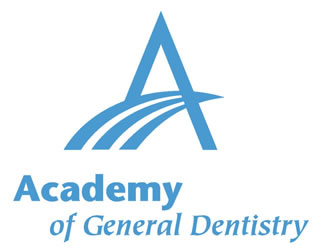Fact Sheet: Oral Cancer
Oral Cancer Prevention and Detection
Oral cancer is a common form of cancer, with roughly 35,000 new cases reported annually in the United States. The most frequent oral cancer sites are the tongue, the floor of the mouth, the soft palate, and the tissues in the lips, gums, and back of the tongue. If not diagnosed and treated in its early stages oral cancer can spread, leading to chronic pain, loss of oral function, irreparable facial and oral disfigurement following surgery, and even death. For this reason, it’s important to regularly visit your dentist so he or she can perform a thorough screening for oral cancer.
How Do Dentists Screen for Cancer?
Your dentist will screen for oral cancer during routine checkups. During the screening, he or she will feel for lumps or irregular tissue changes in your neck, head, cheeks, and oral cavity and will thoroughly examine the soft tissues in your mouth, specifically looking for sores or discolored tissues.
What Causes Oral Cancer?
Scientists are not sure of the exact cause of oral cancer. However, the carcinogens in tobacco products and alcohol, as well as excessive exposure to the sun, have been found to increase the risk of developing oral cancer. Research also suggests that some forms of oral cancer may be caused by the human papillomavirus (HPV).
What are the Warning Signs?
Oral cancer—represented by red, white or discolored lesions and patches or lumps in or around the mouth—is typically painless in its early stages. As the malignant cancer spreads and destroys healthy oral tissue, the lesions or lumps may become more painful. See your dentist immediately if you observe any sore that persists longer than two weeks; a swelling, growth or lump anywhere in or about the mouth or neck; white or red patches in the mouth or on the lips; repeated bleeding from the mouth or throat; difficulty swallowing; or persistent hoarseness.
How Can I Prevent Oral Cancer?
You can help prevent oral cancer by abstaining from all forms of tobacco use and excessive alcohol consumption. According to a study in the May/June 2007 issue of General Dentistry, the clinical, peer-reviewed journal of the Academy of General Dentistry (AGD), vaccines that have been developed to treat HPV might decrease the risk of developing oral cancer. Because successful treatment and rehabilitation are dependent on early detection, it is extremely important to regularly check your mouth for changes in appearance and see your dentist for an oral cancer screening and regular checkup at least every six months. Survival rates greatly increase the earlier oral cancer is discovered and treated. During your next dental visit, ask your dentist to do an oral cancer screening.

